As the global shift toward sustainable transportation accelerates, two titans of the automotive world—Toyota and Tesla—are squaring off in what is shaping up to be the most exciting EV battle of the decade. On one side, you have Tesla, the pioneering EV-exclusive automaker that redefined electric driving. On the other, Toyota, a global automotive leader with unmatched manufacturing prowess, renowned for its hybrid legacy, and now making bold strides into the full-electric arena.
In 2025, this rivalry has intensified. With evolving technologies, new models, and fierce competition for market dominance, the Toyota vs. Tesla faceoff is more relevant than ever. This article delves into their 2025 EV lineups, innovation strategies, pricing, performance, charging infrastructure, and the bigger picture of what this battle means for consumers and the industry at large.
The Contenders: Where They Stand in 2025
Tesla: The Tech-Driven Trailblazer
Tesla remains the benchmark in the EV world. Known for its cutting-edge technology, expansive Supercharger network, and futuristic interiors, Tesla continues to dominate in brand recognition and innovation. In 2025, Tesla’s lineup includes:
Model 3 Highland (refreshed design, improved range, and affordability)
Model Y (best-selling EV globally)
Model S Plaid (ultra-performance luxury sedan)
Model X (flagship SUV with Falcon Wing doors)
Cybertruck (futuristic electric pickup, now in full production)
Tesla Roadster (anticipated launch later this year)
Tesla Semi (targeting commercial logistics)
Tesla’s vehicles are powered by advanced battery tech, frequent over-the-air updates, and self-driving aspirations through its Full Self-Driving (FSD) software, now in wider beta testing.
Toyota: The Rising Electric Force
For years, Toyota focused on hybrids, with the Prius being a global icon. But in 2025, Toyota is fully embracing the EV revolution. With the bZ (Beyond Zero) lineup expanding and solid-state battery innovation in the works, Toyota is ready to challenge Tesla on every front.
Key models in Toyota’s 2025 EV portfolio include:
bZ4X (refined all-electric crossover with AWD)
bZ3 (sedan designed in partnership with BYD for the Chinese market)
Toyota Compact Cruiser EV (rugged, retro SUV concept now in production)
Toyota bZ Sport Crossover (targeting young urban buyers)
Luxury Lexus EVs (e.g., Lexus RZ and upcoming all-electric LS variant)
Toyota is also preparing to launch solid-state battery EVs with over 600 miles of range and 10-minute charging capability, a potential game-changer that could upend the current battery landscape.
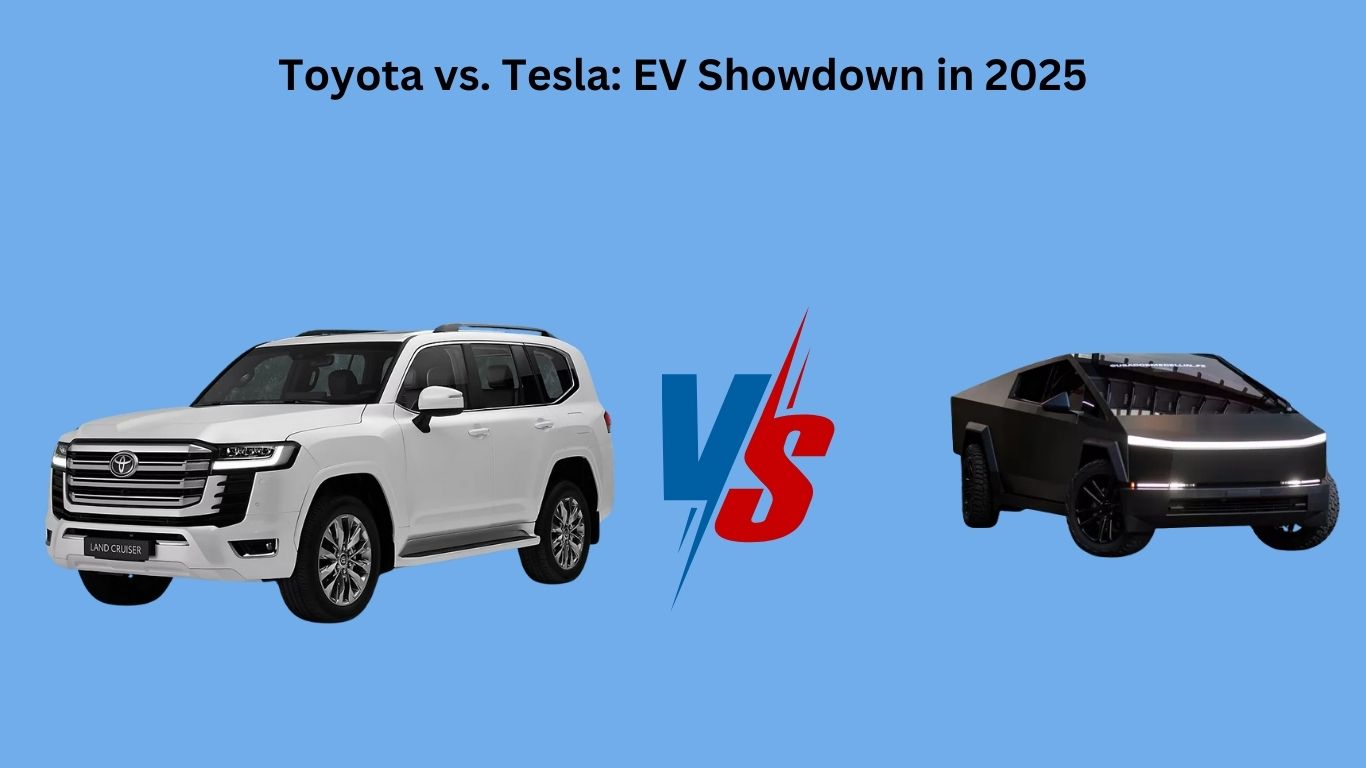
Performance and Range: Who’s Winning?
Tesla continues to lead in raw acceleration and range across most segments. Its Model S Plaid, for instance, can hit 0–60 mph in under 2 seconds and offers over 390 miles of range. The Model 3 and Y offer between 270 and 358 miles, depending on the variant.
Toyota’s bZ4X, while a solid entry, offers a lower range of about 252 miles (FWD) and 228 miles (AWD). However, Toyota’s focus for 2025 is less on outright acceleration and more on efficiency, safety, and durability. Toyota EVs emphasize balance over brute force.
But Toyota’s solid-state battery breakthrough, expected in late 2025 or 2026, could shift the balance with longer ranges, faster charging, and lighter battery packs—addressing two of the biggest EV pain points: range anxiety and charge time.
Charging Infrastructure: Superchargers vs. Smart Strategy
Tesla’s Supercharger network remains unmatched, with over 50,000 stations worldwide and growing. The company is even opening parts of its network to non-Tesla EVs, thanks to the NACS (North American Charging Standard), which is quickly becoming the default in the U.S.
Toyota, like most legacy automakers, relies on third-party charging partners like Electrify America, ChargePoint, and others. However, Toyota is now investing in charging infrastructure partnerships and software integration to provide seamless access to chargers via a single app interface, similar to Tesla’s all-in-one ecosystem.
Tesla’s charging lead remains a clear advantage—for now. But Toyota’s scale and global partnerships could rapidly close the gap.
Technology and User Experience
Tesla’s minimalist interiors, large central displays, and constant over-the-air updates appeal to tech-savvy buyers. The Tesla Autopilot and FSD (Full Self-Driving) features remain controversial but are years ahead in terms of vision and ambition.
Toyota, on the other hand, takes a more measured approach. Its 2025 EVs offer:
Advanced driver assistance systems (Toyota Safety Sense 3.0)
Digital cockpits with dual displays
Wireless Apple CarPlay/Android Auto
Over-the-air updates (new for Toyota but growing)
Voice-command navigation and personalized profiles
While not as futuristic as Tesla’s tech stack, Toyota focuses on intuitive, user-friendly interfaces that appeal to traditional drivers transitioning into EVs.
Reliability and Service
Tesla is known for innovation, but its fit-and-finish, service availability, and build consistency have faced criticism. Service centers are expanding, but long wait times still plague some Tesla owners.
Toyota, in contrast, is the gold standard in reliability. As it enters the EV space, Toyota brings its legendary manufacturing discipline, robust dealership network, and customer trust to the table. For buyers prioritizing long-term dependability, Toyota may have the upper hand.
Price and Value
Tesla’s pricing continues to fluctuate based on market demand and incentives. As of 2025:
Model 3 Highland: From ~$38,000
Model Y: From ~$44,000
Model S: ~$75,000+
Cybertruck: ~$60,000+
Toyota’s EVs aim for affordability and accessibility:
bZ4X: Starts around $43,000 (before incentives)
Upcoming bZ Compact and bZ3: Expected to be priced in the mid-$30K range
Lexus EVs: Premium pricing but with greater focus on luxury refinement
Government tax credits and regional incentives also play a major role, and Toyota’s new EVs may qualify more broadly thanks to domestic production shifts.
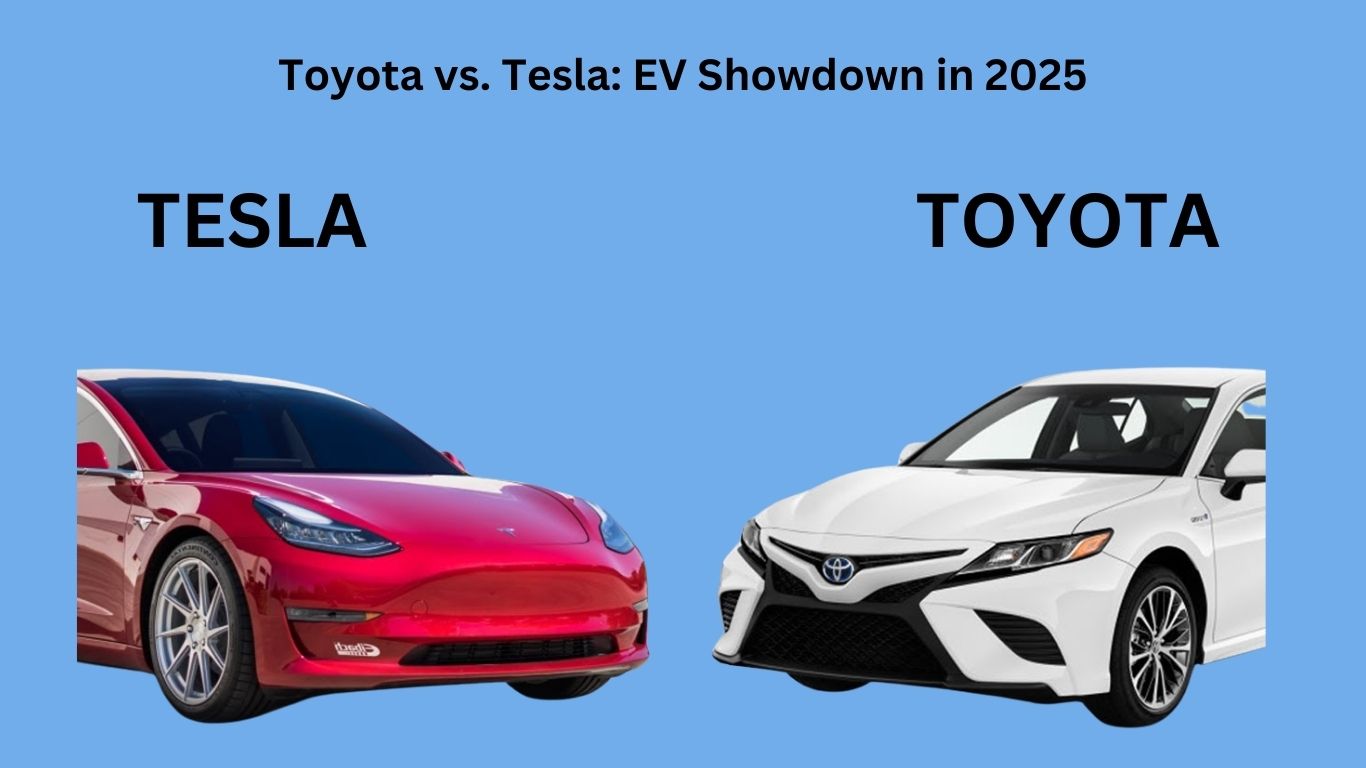
The Bigger Picture: Two Philosophies, One Future
This EV showdown isn’t just about sales numbers—it’s a clash of philosophies:
Tesla: Disruptive, software-first, visionary. A company that started from scratch and reshaped the automotive industry by ignoring traditional rules.
Toyota: Cautious, methodical, and built on decades of global leadership. A company that revolutionized hybrids and is now unleashing its global power in the EV space.
As of 2025, Tesla leads in innovation, infrastructure, and EV-specific branding. But Toyota brings balance, long-term reliability, and a roadmap filled with solid-state battery promise and global market reach.
Final Verdict: Who Wins in 2025?
There is no clear “winner”—because different drivers want different things.
If you want cutting-edge tech, fast charging, and acceleration that snaps your neck, Tesla is your brand.
If you’re looking for practical design, legendary reliability, and an EV transition that feels comfortable and safe, Toyota may be the smarter choice.
What’s certain is that the EV market is no longer a one-horse race. Toyota’s serious entrance makes the entire segment better. In the end, the real winners are the drivers—with more options, better technology, and a cleaner, more electric future.
20 FAQs – Toyota vs. Tesla: EV Showdown in 2025
Which is better in 2025: Toyota or Tesla for electric vehicles?
It depends on your priorities. Tesla excels in innovation and performance, while Toyota offers reliability and is quickly catching up in EV tech.Is Toyota releasing more EVs in 2025?
Yes, Toyota is expanding its EV lineup in 2025 with models like the bZ4X, bZ3, and the Compact Cruiser EV, and plans to launch solid-state battery vehicles soon.Does Tesla still lead the EV market in 2025?
Tesla remains a leader in EV innovation and sales, but competition from Toyota and other automakers is growing rapidly.What’s the range difference between Tesla and Toyota EVs in 2025?
Tesla offers a higher range overall, with models like the Model S exceeding 390 miles, while Toyota’s bZ4X offers around 228–252 miles.Are Toyota EVs more affordable than Teslas?
In many cases, yes. Toyota’s EVs tend to be more affordable upfront, especially as they target mass-market buyers.Do Toyota EVs qualify for U.S. federal tax credits in 2025?
Some models do, particularly those manufactured in North America. Eligibility depends on production location and battery sourcing.Is Tesla’s Full Self-Driving (FSD) available in 2025?
Tesla’s FSD is in wide beta testing and offers advanced driver assistance, but it’s not fully autonomous or government-approved as self-driving yet.Does Toyota have its own charging network like Tesla?
No, Toyota partners with third-party charging networks but is working on improving accessibility and integration through apps and services.Which EV brand has better reliability in 2025: Tesla or Toyota?
Toyota is historically more reliable in terms of manufacturing and service quality, though Tesla has improved significantly.Are Toyota’s EVs good for long-distance driving?
Current models like the bZ4X are ideal for city and suburban driving. Toyota’s upcoming solid-state batteries will significantly boost long-distance viability.How does the Tesla Supercharger network compare to Toyota’s options?
Tesla’s Supercharger network is still the most robust and reliable charging infrastructure in 2025, giving it an edge.Is Toyota launching solid-state battery vehicles in 2025?
Toyota plans to debut its first solid-state battery EV in late 2025 or early 2026, promising over 600 miles of range and ultra-fast charging.Which is better for families: a Toyota EV or a Tesla?
Toyota EVs like the bZ4X and upcoming Compact Cruiser may appeal more to families due to interior space, reliability, and dealer service access.Can Toyota EVs use Tesla Superchargers?
Not yet widely, but with the adoption of the NACS plug in North America, compatibility may improve in the near future.Which brand offers better over-the-air (OTA) updates?
Tesla leads in OTA software updates, offering frequent improvements. Toyota has started OTA support but is still in early stages.Does Toyota offer an electric SUV in 2025?
Yes, Toyota’s bZ4X is a midsize all-electric SUV available in both FWD and AWD variants.How do Tesla interiors compare to Toyota EV interiors?
Tesla’s interiors are minimalist and tech-heavy. Toyota focuses on traditional comfort, physical controls, and intuitive layouts.What’s the acceleration difference between Tesla and Toyota EVs?
Tesla leads in performance, with many models achieving 0–60 mph under 4 seconds. Toyota prioritizes balanced efficiency over extreme acceleration.Are Toyota’s EVs safer than Tesla’s?
Both brands offer strong safety features. Toyota uses Toyota Safety Sense 3.0, while Tesla relies on its Autopilot system with constant improvements.Will Toyota overtake Tesla in EVs?
It’s possible in the long term. Toyota has the scale, global reach, and investment power to rival Tesla, especially with breakthroughs like solid-state batteries.

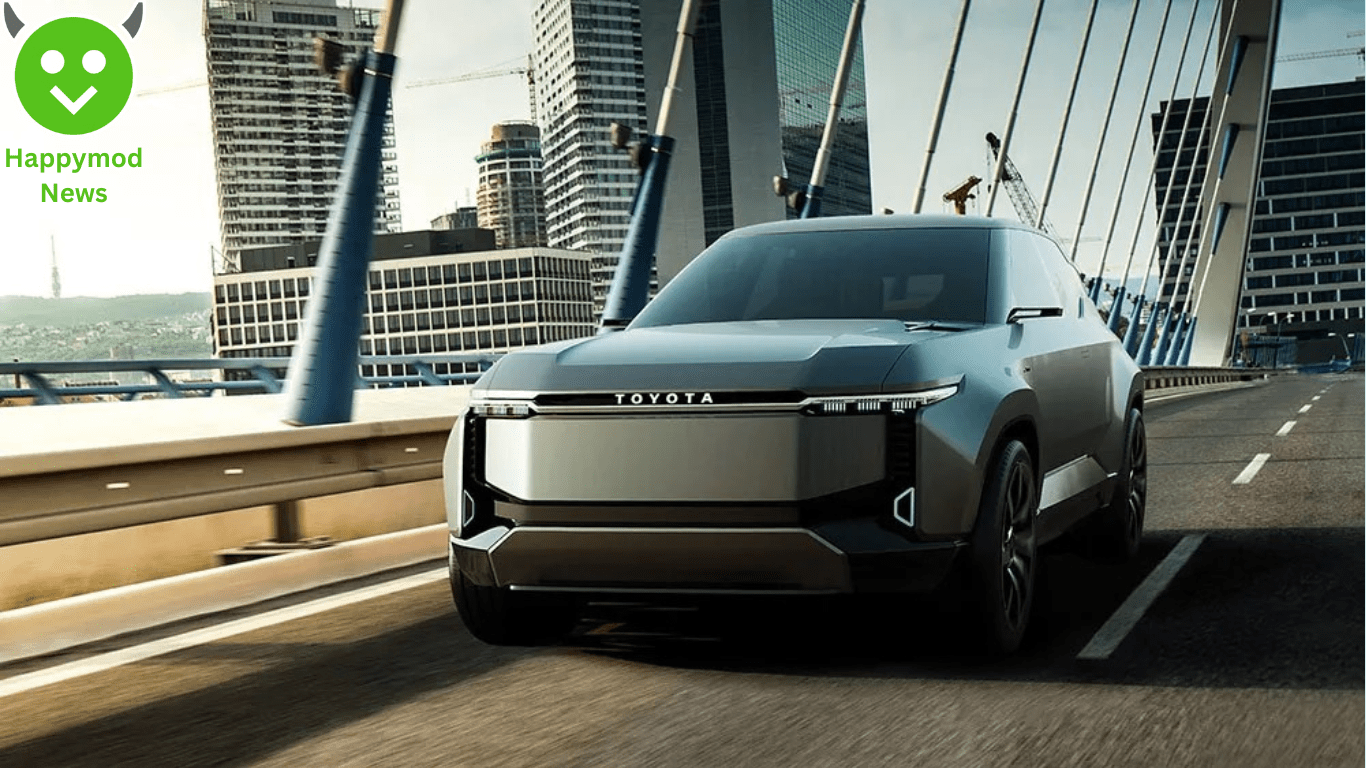
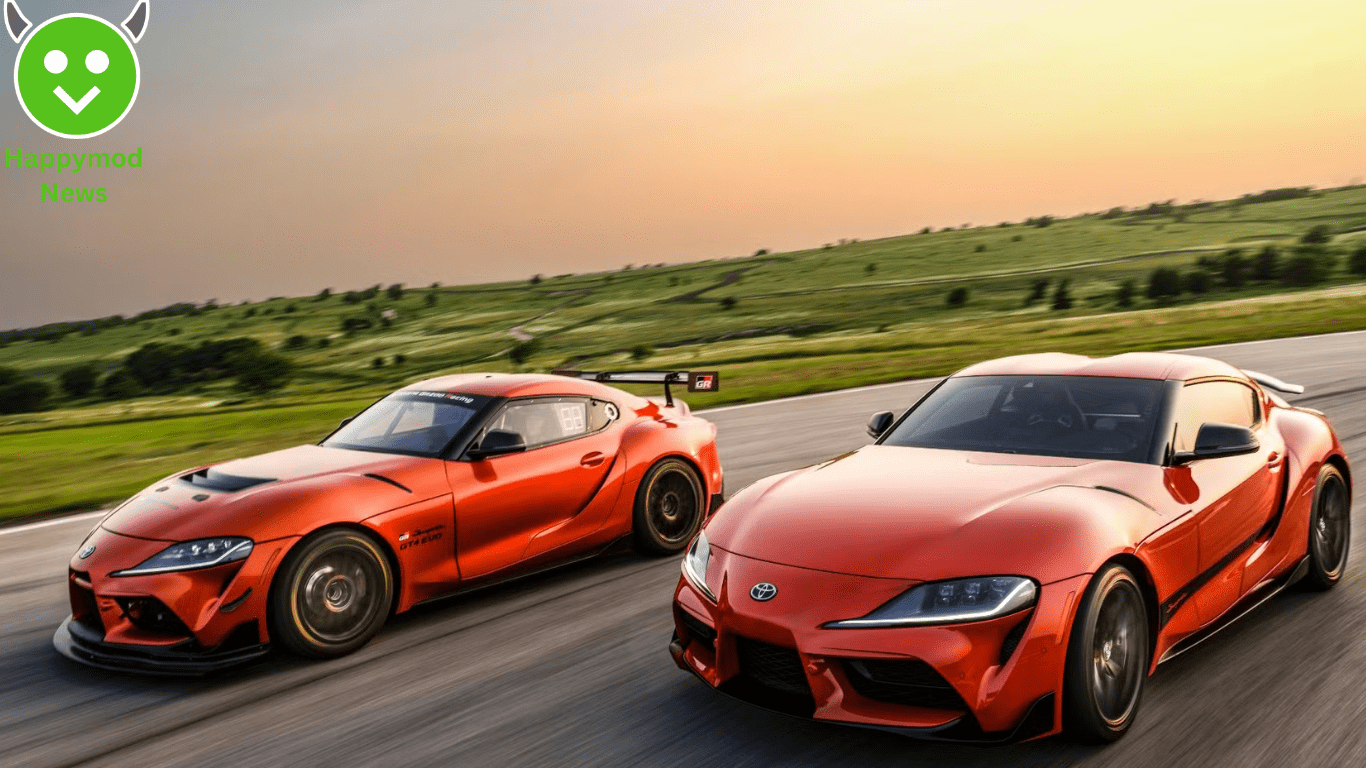
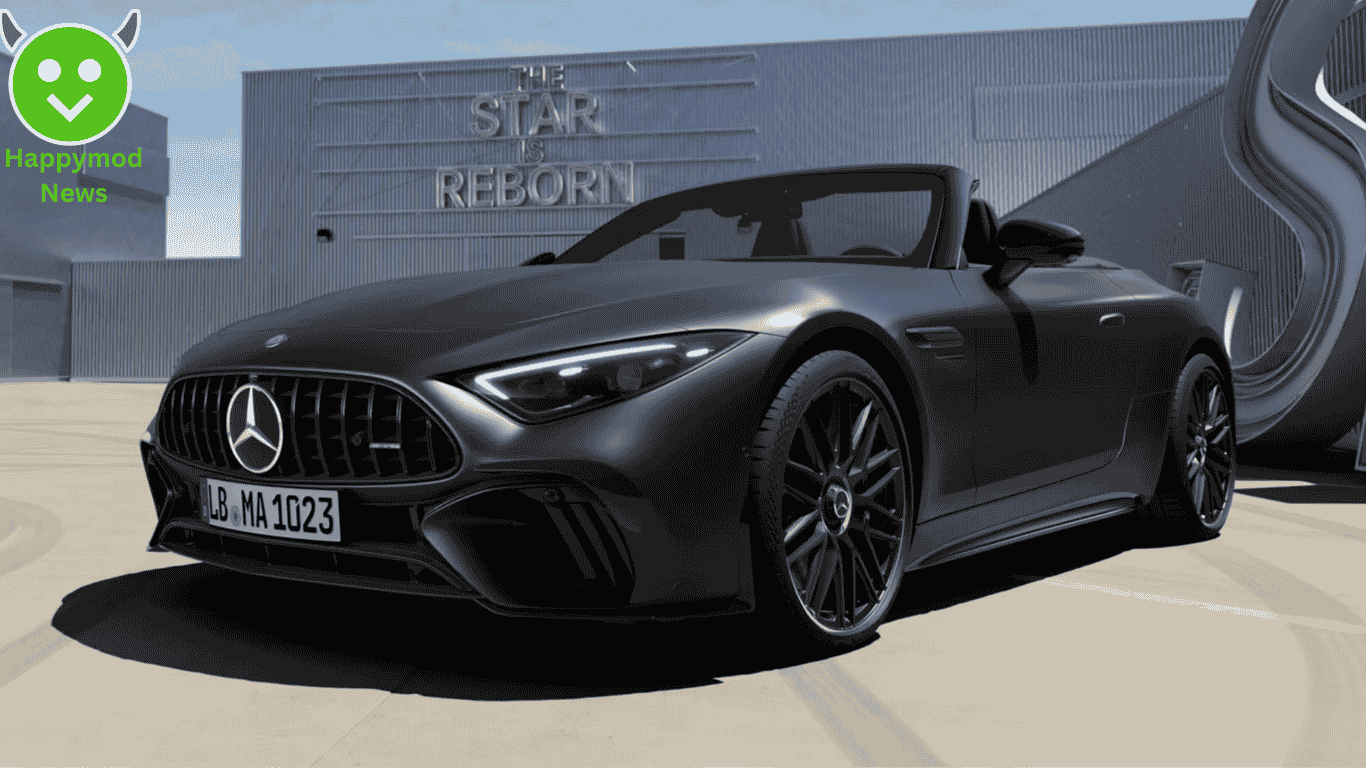






![The Cheapest Car Insurance Companies in the USA [2025 Edition]](https://happymod.fun/wp-content/uploads/2025/04/piclumen-1745169121216-110x85.png)









